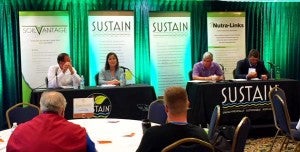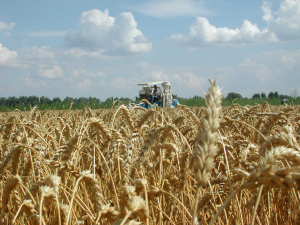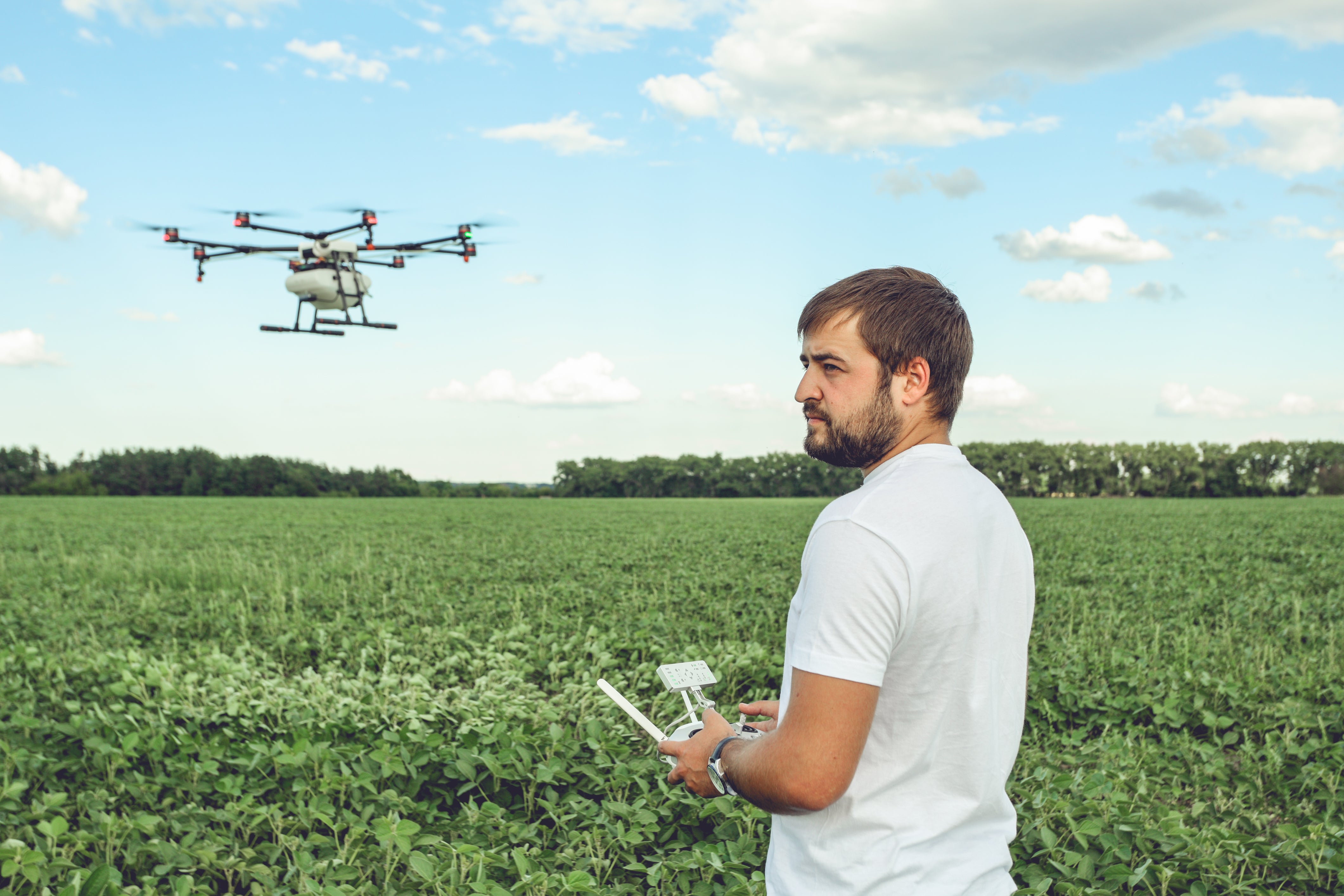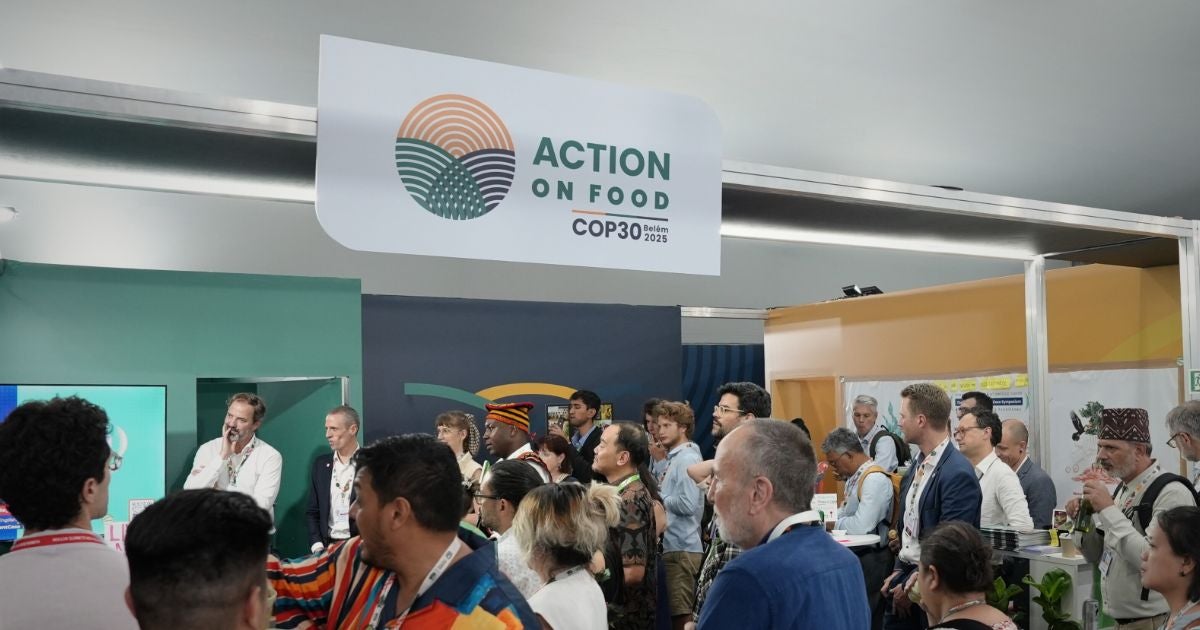Strong market signal for sustainable grain

The agricultural supply chain is shifting towards demanding more sustainably produced grains, according to some of the country’s biggest food companies and retailers.
Representatives from Walmart, Smithfield Foods, and USDA recently discussed the importance of and increased consumer demand for agricultural sustainability in front of 100 agricultural retailers in St Louis. They were there for a meeting convened by United Suppliers, Inc., with a primary focus of the company’s SUSTAIN™ platform.
Three messages were clear:
- Demand for more sustainable crops is here to stay.
- Growers’ connection with the consumers of their products is increasing.
- Fertilizer optimization and soil health offer a business opportunity for growers, ag retailers, and food companies alike.
Demand for sustainability is strong
Janelle Kearsley, Walmart’s senior director of stakeholder engagement, spotlighted Walmart’s sustainability commitments in its food supply chains. Fertilizer used on corn was found to be a top greenhouse gas hotspot for more than half of Walmart’s suppliers. That fact prompted the world’s largest grocer to ask leading food companies to increase fertilizer efficiency and soil health in their sourcing regions.
Food companies were quick to respond. So far, Walmart suppliers and partners have pledged to improve fertilizer efficiency and soil health on 23 million acres of grain cropland by 2020.
Kearsley is passionate about Walmart’s commitment to sustainability in its supply chain. To ensure the capacity for increased growth to feed a growing population, Walmart needs a reliable supply of high-quality food. Sustainable practices help build resiliency into the agricultural systems that Walmart relies on.
Sustainability is also a key topic with investors, employees, and consumers – both for Walmart and for Smithfield Foods, the world’s largest pork producer. About 60 percent of Smithfield’s hog production costs are grain, so the profitability and viability of grain production is very important for its bottom-line.
Kraig Westerbeek, the company’s vice president of environmental compliance and support operations, singled out three reasons for Smithfield’s commitment to improving fertilizer efficiency and soil health:
- Increase the profitability of grain farmers, which is critical to ensuring a continued supply of animal feed.
- Help Smithfield meet their internal sustainability goals.
- Improve relationships with key customers who want more sustainable food.
The Campbell Soup Company also expressed the importance of sustainability to the crowd, handing out Goldfish crackers along with information on the company’s sustainable sourcing goals.
Growers have more direct connections with consumers

“Businesses like ours have to respond to what customers want,” said Westerbeek, noting that growers also have the opportunity to connect more with the end consumer.
For many years, growers did not have a connection to the end user of their products, but that is changing. Consumers want to know where their food is coming from, and growers have an opportunity to share their stories through food companies and retailers like Smithfield and Walmart.
Sustainability equals business growth
Dr. Jerry Hatfield is laboratory director for the USDA-Agriculture Research Service, and he hit home the business opportunity of sustainability for growers. Fertilizer efficiency products can improve yields by 15 bushels per acre, and foliar application of nitrogen late in the season can boost yields five to 10 bushels.
Hatfield asked growers in attendance, “Is every field making you money? If not, are you doing the right things on that field?” For example, practices like nitrogen stabilizers improve profitability and reduce loss to the environment.
Here’s the St. Louis message in a nutshell: the demand for sustainability within U.S. grain crops is here to stay. And fertilizer efficiency and soil health are good for the whole supply chain, from growers in the fields to consumers in the grocery stores.
Related Links:
Sustainability and profitability go hand-in-hand, says Iowa corn farmer
More reasons to embrace food sustainability
USDA-funded projects help farmers protect water and wildlife













One Comment
The word “sustainable” has no accurate, well defined meaning whatsoever to me or anyone else. We are continuous cover cropping no-tillers from Wisconsin. Where is the premium market for our high quality dense crops? There isn’t any, but we continue to get compliments from the guys at the elevator. Nice try guys. tom b